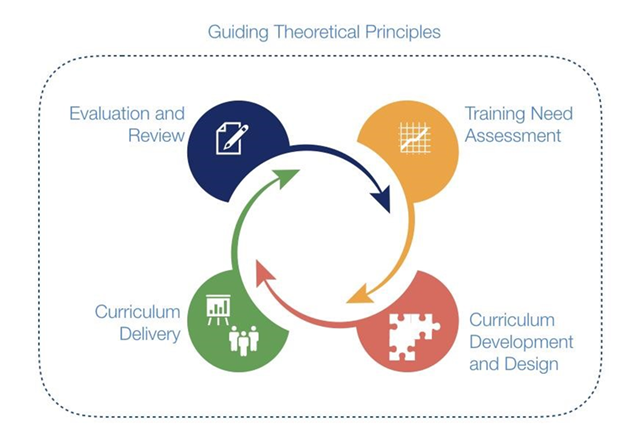Capacity Building - EMSA Academy
Training has been from the outset a core task of EMSA. Its founding Regulation requires the Agency to work with the Member States to organise (where appropriate) relevant training activities in fields which are the responsibility of the Member States. Furthermore, the Agency may, upon the request of the Commission, provide technical assistance, including the organization of relevant training activities, as regards relevant legal acts of the Union, to States applying for accession to the Union, and, where applicable, to European Neighbourhood partner countries and to countries taking part in the Paris MoU. The overall goal of EMSA training is to build capacity at national level, to foster cooperation and to disseminate best practices, thus achieving optimal and uniform implementation of maritime legislation and ensuring a level playing field.
The European Maritime Safety Agency, through the EMSA Academy, a flagship project in the area of Capacity Building, offers to its beneficiary organizations (i.e. EU Member States, IPA, ENP) learning services outside formal education as well as access to tools in support of their capacity as Flag, Port and Coastal States.
The EMSA Academy aims to become an EU-wide and global centre of excellence for the design, development and delivery of quality learning services outside formal education in the maritime domain. The EMSA Academy supports the acquisition and development of knowledge, skills and competencies through teaching and learning and by adopting curricula and professional development pathways to satisfy learning needs and expectations of beneficiary individuals and organizations. The EMSA Academy offers learning services outside formal education in the maritime domain, using as a reference standard ISO 29993:2017. Based on this standard, the Agency has developed and implements the EMSA Academy Management System (AMS) as the reference framework. The AMS follows the same process approach as used within the EMSA Integrated Quality and Environmental Management System Manual (IQEMSM – Link to EMSA ISO) and specific processes have been developed in order to fulfil the Academy’s scope and objectives, taking into consideration the requirements of ISO 29993:2017.
- PS-CB-ANA = Needs Analysis (related reference in ISO 29993:2013: Paragraphs 5 and 7) -
- PS-CB-DES = Design & Development (related reference in ISO 29993:2013: Paragraph 8)
- PS-CB-INF = Information on Learning Services (related reference in ISO 29993:2013: Paragraphs 4,6 and 9)
- PS-CB-DEL = Implementation & Service Delivery (related reference in ISO 29993:2013: Paragraph 10)
- PS-CB-EVA = Evaluation & Continuous Improvement (related reference in ISO 29993:2013: Paragraphs 12 and 13)
The EMSA Academy’s blended training approach allows for learning services to be delivered through a flexible and scalable portfolio of tools and technologies. The Academy publishes its courses and learning programmes through its Moodle-based Maritime Knowledge Centre Service (MaKCs). Furthermore, VRESI, the Virtual Reality Environment for Ship Inspections offers immersive and configurable training scenarios which allow learners to perform ship inspections in a safe, realistic and controlled virtual reality environment.
EMSA Academy has been accredited by TÜV Rhineland Portugal for the design, development and delivery of learning services outside formal education in the maritime domain as per ISO 29993:2017

Within the capacity building toolbox, the Agency has developed RuleCheck, a web-based Repository of Maritime Legislation that provides to users’ access to the updated editions of IMO Conventions, Codes, Resolutions and Circulars, ILO Conventions and Guidelines, Maritime related EU Regulations and Directives and the Paris MoU Manual and Instructions. The tool supports EU Member States, IPA and ENP countries in their capacity of Flag and Port States, as well as eight regional Port state control regimes in the world thus enhancing access to the up-to-date regulations, fostering further global harmonization of the implementation of the international conventions and ensuring level playing field.
As part of the projects for technical assistance funded by the European Commission, EMSA offers cooperation and assistance in the fields of maritime safety and security, prevention of pollution from ships and marine environmental issues to:
